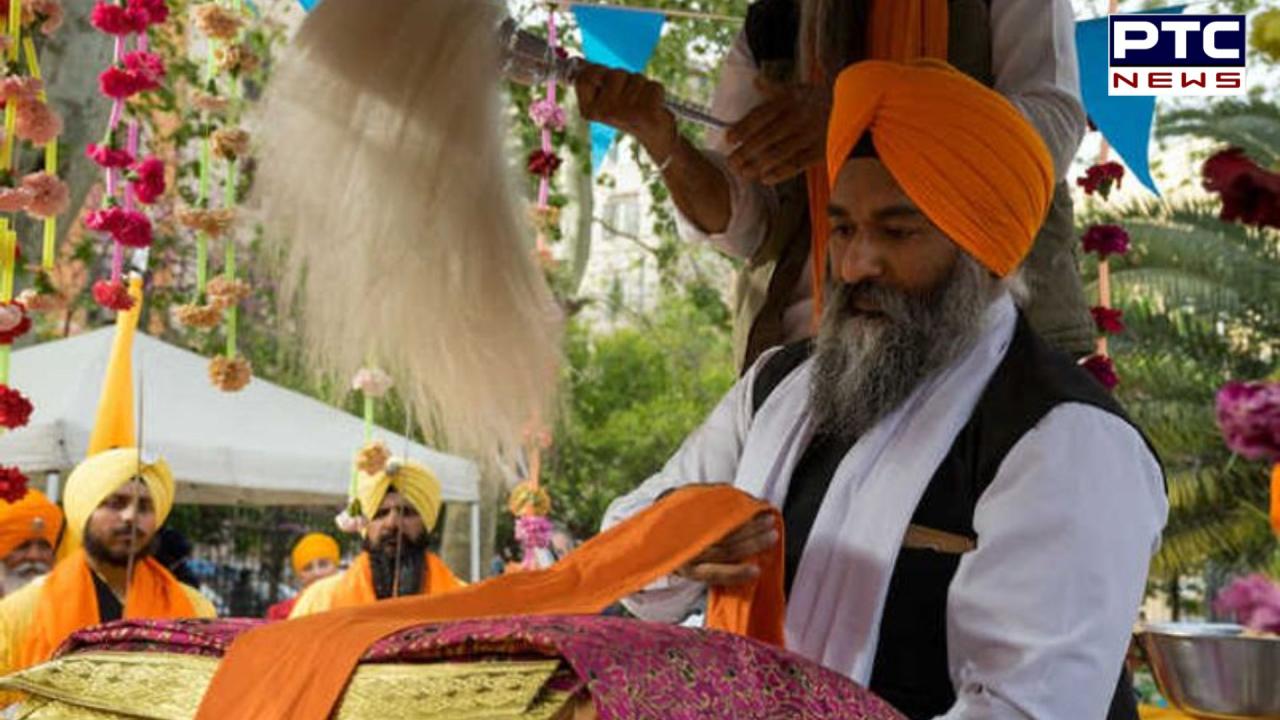UK music exam board officially recognises kirtan as Sikh Sacred Music
Birmingham-based musician and academic Harjinder Lallie has devoted years towards kirtan taking its rightful place alongside Western classical music and ensuring the traditional musical skills are preserved for generations to come

PTC News Desk: For the first time in the UK, kirtan has been officially recognised as part of the graded music examination system, with students now able to study and be formally assessed in "Sikh Sacred Music." Starting Friday, this recognition marks a significant milestone as it integrates kirtan into a structured curriculum and examination process, alongside Western classical music.
Birmingham-based musician and academic Harjinder Lallie has worked tirelessly for years to ensure kirtan's rightful place in the music education system, aiming to preserve the traditional musical skills of the Sikh faith for future generations. Kirtan, which involves the singing of shabad (scriptures from the Guru Granth Sahib), is a central devotional practice in Sikhism.
The Music Teachers' Board (MTB), a London-based examination board, has included Sikh Sacred Music in its globally recognised eight-grade music exams. Students will now have the opportunity to earn UCAS points for Grades 6-8, which can be used for university admissions in the UK.
Dr. Lallie, who teaches at the Gurmat Sangeet Academy in the UK, expressed his pride and gratitude for this achievement. "It's been 10 hard years of work to get the curriculum accepted and launched. It is deeply humbling but also fills me with pride that Western audiences now appreciate kirtan as much as the violin, piano, or any other Western music genre."
This new curriculum also brings recognition to five traditional Indian string instruments: dilruba, taus, esraj, sarangi, and saranda. Historically, kirtan was performed with tanti saaz (string instruments), but over the last 150 years, these instruments were gradually replaced by the harmonium. Dr. Lallie emphasized the importance of returning to these traditional roots, noting that this exam system requires candidates to perform kirtan using stringed instruments rather than the harmonium.
The effort to revive traditional Sikh music has been supported by the South Asian Music Committee, which collaborated with MTB on this initiative. The committee consists of representatives from global organizations dedicated to promoting Sikh Sacred Music.
David Kesel, Managing Director of MTB, praised the recognition of Sikh Sacred Music. "It’s really nice to see that students learning Sikh Sacred Music will now be acknowledged for their dedication, just like those studying instruments like the piano, violin, or guitar."
For MTB, which has been at the forefront of innovative and culturally diverse music education, this project is a key step in broadening musical traditions and celebrating global cultures. Kesel highlighted that the board had already launched Bollywood and Indian pop music syllabi, marking a shift toward greater inclusion of Indian music in their programs.
Jasvir Singh, Chair of the City Sikhs community group in the UK, hailed the development as a historic moment for Sikh music. "Kirtan is a fundamental part of Sikh identity, and this recognition gives it the academic worth it rightly deserves. It will encourage British Sikhs to explore their heritage with pride, while also helping them advance in education."
This new qualification marks the beginning of a broader initiative, with plans to introduce accredited tabla exams by early next year, followed by other traditional South Asian instruments like the sitar and sarod.
Also Read: Apple iPhone 16 series sale kick-starts in India amid long queues at Delhi and Mumbai stores
